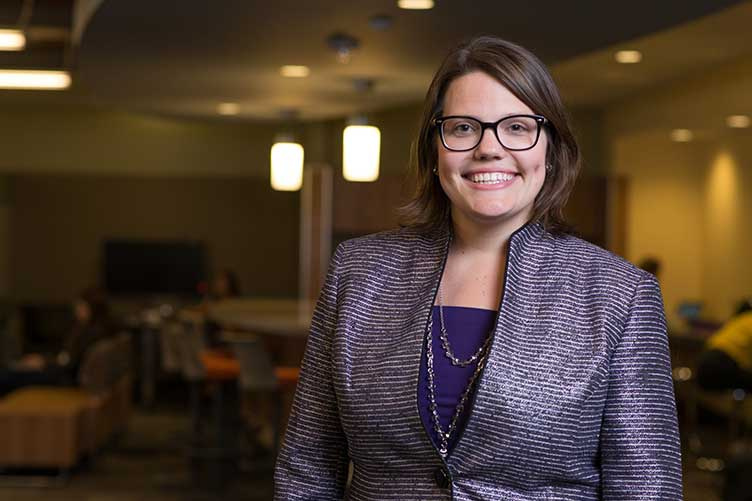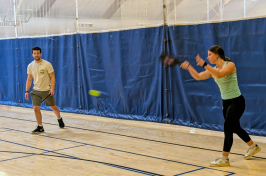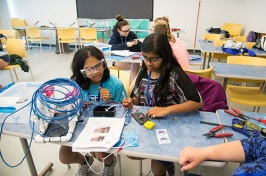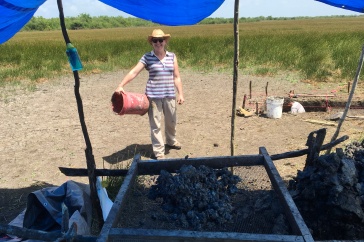
Katie Edwards, assistant professor of psychology, is in Nairobi, Kenya, learning about a prevention initiative that has been implemented in the city’s six largest slums.
No means no. Not just here, on this campus, in this country, but everywhere, even in Kenya, which has one of the highest instances of rape in the world. Fortunately, it also has a progressive sexual assault initiative aimed at risk reduction and prevention.
And that is what has taken Katie Edwards, assistant professor of psychology, to Africa. This month, Edwards traveled to Nairobi on a faculty international travel grant to learn more about No Means No Worldwide, the prevention initiative that has been implemented in the city’s six largest slums.
No Means No Worldwide is a school-based program that uses violence prevention and intervention training aimed at teaching youth to take action to stop sexual assault.
Edwards is the director of UNH’s interpersonal violence research laboratory, which explores interpersonal violence, focusing primarily on sexual assault and intimate partner violence among adolescents and young adults.
“My current research is focused domestically. This trip will allow me to learn about prevention work happening in other parts of the world, and that will help inform my work here in the future and hopefully open up opportunities for further collaborations,” Edwards says.
No Means No Worldwide is a school-based program that uses violence prevention and intervention training aimed at teaching youth to take action to stop sexual assault.
While in Africa, she will meet with practitioners, researchers and advocates to explore the possibility of using No Means No Worldwide in the U.S. Edwards also will visit with researchers in South Africa to learn more about their violence prevention evaluation projects.
“Prevention work in various countries in Africa is truly cutting edge, and includes other prevention initiatives that are grounded in challenging, rigid and harmful gender norms that are precursors to sexual violence and other health behaviors such as HIV transmission risk,” says Edwards, who is keeping a blog during her visit.
No Means No teaches girls to fight their attacker, an idea that goes against the societal grain and helps girls overcome the belief system that prevents them from defending themselves.
“Where are the messages coming from that tells girls they can’t say no?” Edwards says. “Feminist self-defense is empowering. But girls need to know, if they fight or if they don’t, rape is never the victim’s fault.”
There is evidence that girls defending themselves can lead to reductions in sexual victimization and improvements in mental health, including self-esteem. Edwards notes that engaging boys and men in preventing sexual violence also is critical, adding that the most effective prevention initiatives are multi-pronged and comprehensive.
Prior to the work of No Means No, one in five girls were raped in the Nairobi slums every year. Since the program has been implemented, sexual assaults have been cut in half.
According to Edwards, the program curriculum “provides youth with awareness of the causes and impacts of sexual violence and teaches youth skills to intervene and prevent sexual violence. Girls receive empowerment and self-defense training, and boys receive healthy masculinity, social norms and bystander intervention training that is grounded in the cultural experiences of these youth.”
“No Means No is about teaching girls skills to thwart a sexual assault and reminding them they have the right to say no,” Edwards says. “It’s also about helping people step up to the challenge of ending sexual violence in their communities.”
-
Written By:
Jody Record ’95 | Communications and Public Affairs | jody.record@unh.edu


















































